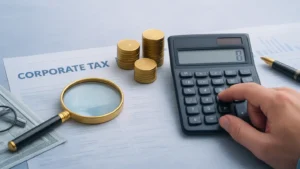
What’s New with I-RECs in 2026: What Businesses Need to Know Now?
For businesses in the UAE, particularly those with international supply chains, export exposure, or ESG-linked financing, the I-REC landscape in 2026

The world is changing. Governments, financial institutions, and businesses across the globe are waking up to the fact that sustainability is not just a trend; it’s a necessity for long-term success. And here in the Gulf Cooperation Council (GCC), countries are making bold strides to embrace sustainable finance, integrating Environmental, Social, and Governance (ESG) factors into business and investment strategies.
So, let’s explore how sustainable finance is becoming a game-changer for the region, what the future holds, and how businesses and investors can capitalize on this massive opportunity. Ready? Let’s dive in.
You might be thinking, “Why should sustainable finance matter to us here in the GCC?” Great question! The region has long been synonymous with oil and gas, and sustainable finance might seem like something more suited for markets in the West. But here’s the thing: the global financial landscape is shifting, and the GCC is in the perfect position to lead the charge in sustainable finance. Why? Let’s break it down.
With economies built on oil and gas, GCC countries have long been at the heart of the global energy supply. But here’s where it gets interesting—the world is changing, and so is the financial ecosystem. Sustainable finance isn’t just a “nice-to-have”; it’s a strategic move. Governments across the GCC are looking to diversify away from fossil fuels and are turning to green energy, renewable resources, and sustainable projects to future-proof their economies. And you know what? Sustainable finance is leading the way!
These nations are increasingly seeing the economic value in integrating sustainability into their investment portfolios. So, if you’re an investor or business leader, here’s the bottom line: sustainable finance is your way to stay ahead of the curve.
Don’t think the trend is just happening in the GCC. Global investors are prioritizing ESG investments, pushing companies to integrate sustainable practices. And guess what? If GCC countries want to attract that international investment, they need to align with global ESG standards.
Let’s not forget about the regulatory landscape. Globally, governments and regulators are cracking down on corporate sustainability, demanding more transparency in how companies manage environmental risks, social responsibilities, and governance. In the UAE and beyond, governments are taking steps to meet global climate agreements and reduce carbon emissions. This regulatory pressure means that businesses in the GCC need to adapt, and sustainable finance is the way forward to meet these expectations.
So, we know why sustainable finance is important for the GCC, but how is it unfolding in practice? Let’s look at the key trends that are shaping the future of sustainable finance in the region.
Here’s a game-changer: Green bonds and green sukuk are on the rise in the GCC. These are debt instruments used to fund projects that have positive environmental impacts, like renewable energy or energy-efficient buildings.
Green bonds and sukuk are critical tools in driving the region’s transition to sustainability. And as investors around the world are increasingly prioritizing ESG investments, the GCC’s green bond market is set to expand significantly.
Let’s face it: the future is green! The GCC, with its vast sunshine, is perfectly positioned to lead the renewable energy revolution. Solar power, wind energy, and hydropower are on the rise—and sustainable finance is right there, powering these efforts.
Renewable energy investments are booming, and businesses investing in these areas are attracting global attention. Sustainable finance here is not just about compliance—it’s about being part of a global transition to green energy.
As the demand for sustainable investments grows, ESG-focused investment funds are popping up all over the GCC. Investors are increasingly looking for portfolios that are not only profitable but also responsible and aligned with sustainable goals.
These funds are designed to invest in companies that prioritize environmental responsibility, social equity, and strong governance practices. For investors in the region, this is an opportunity to diversify while ensuring their money is doing good for the planet.
Here’s where the GCC is really stepping up: aligning national policies with the United Nations Sustainable Development Goals (SDGs). These goals cover everything from climate action to affordable and clean energy and quality education.
While the growth of sustainable finance is exciting, there are some challenges to address. For instance:
Even with these challenges, the opportunities are immense. Let’s look at some of the key areas where sustainable finance can thrive:
GCC countries are rich in renewable resources—solar energy, wind energy, and even geothermal energy. Financing green infrastructure projects, such as sustainable buildings, smart grids, and solar farms, presents a huge opportunity for sustainable investments.
The green sukuk market is ripe for expansion in the GCC. These instruments provide capital for environmentally-friendly projects, such as renewable energy plants, sustainable cities, and green buildings. As international investors continue to focus on ESG investing, the demand for green sukuk will only grow.
By focusing on ESG-driven investment funds, GCC countries can tap into the growing demand for responsible investment products. This trend is already seeing momentum, with local financial institutions creating ESG-focused funds that attract socially-conscious investors.
At IFRSLAB, we are dedicated to helping businesses and investors navigate the complex world of sustainable finance in the GCC. Our expert ESG advisory services and ESG consulting ensure that your investments align with global sustainability standards and support long-term growth.
We offer tailored solutions for:
Well, just to sum it up quickly, businesses need to understand that sustainable finance is all about ensuring long-term success, reducing risks, and making responsible investments that contribute to a more sustainable future. In the GCC, sustainable finance is transforming the region’s investment landscape, opening doors for green energy, ESG-driven funds, and responsible investments.
At IFRSLAB, we’re committed to supporting businesses and investors on their sustainable finance journey. Contact us today to learn more about how we can help you integrate ESG practices and sustainable investments into your strategy. Let’s build a more sustainable future together!
Sustainable finance refers to financial investments, strategies, and instruments that prioritize Environmental, Social, and Governance (ESG) factors. In the GCC, it’s aimed at diversifying economies and fostering sustainable growth.
Sustainable finance supports the region’s transition from oil-dependent economies to low-carbon economies, attracting global investments in renewable energy, green infrastructure, and socially responsible projects.
Green bonds and green sukuk are debt instruments used to raise capital for environmentally-friendly projects such as renewable energy, clean transportation, and energy-efficient infrastructure.
The GCC is investing heavily in renewable energy projects, carbon mitigation, and energy-efficient infrastructure to achieve climate goals, reduce emissions, and attract ESG-focused investment.
Key trends include the growth of green sukuk, increased investments in renewable energy, integration of ESG factors into financial decision-making, and alignment with UN SDGs (Sustainable Development Goals).
GCC nations are adopting international ESG reporting frameworks such as GRI, SASB, and TCFD to meet global investment standards and ensure transparency in sustainability reporting.
Banks and investment firms in the GCC are increasingly offering green bonds, ESG investment funds, and sustainable financing options to support sustainable projects and align with global ESG objectives.
Challenges include lack of standardized ESG data, regulatory uncertainty, cultural shifts away from oil dependence, and the high upfront costs associated with financing sustainable projects.
Investors can capitalize on opportunities in renewable energy, green infrastructure, ESG funds, and low-carbon technologies in the region, all while aligning with sustainable development goals.
IFRSLAB provides ESG advisory services, ESG consulting, and ESG reporting strategies to help businesses and investors navigate the complex world of sustainable finance, ensuring compliance and capitalizing on new opportunities.

For businesses in the UAE, particularly those with international supply chains, export exposure, or ESG-linked financing, the I-REC landscape in 2026

Below in this article, we have outlined five critical UAE tax rule updates for 2026, explains their practical impact, and sets out how businesses should prepare strategically, not reactively.

For many organisations, ESG reporting has long been perceived as a future problem. Something relevant to large multinationals, public companies, or heavily regulated sectors. That assumption is no longer valid.
UAE : (+971) 52 710 0320 PAK : (+92) 300 2205746 UK : (+44) 786 501 4445
Office 2102 Al Saqr Business Tower 1, Sheikh Zayed Road
S-25, Sea Breeze Plaza Shahrah-e-Faisal, Karachi
Office#1304, 13th Floor, Al Hafeez Heights, Gulberg III
P.O. Box 71, P.C. 100, Muscat
104 Broughton Lane Salford M6 6FL,
UAE : (+971) 52 710 0320 PAK : (+92) 300 2205746 UK : (+44) 786 501 4445
Office 2102 Al Saqr Business Tower 1, Sheikh Zayed Road
S-25, Sea Breeze Plaza Shahrah-e-Faisal, Karachi
Office#1304, 13th Floor, Al Hafeez Heights, Gulberg III
104 Broughton Lane Salford M6 6FL
P.O. Box 71, P.C. 100, Muscat
Typically replies within a day